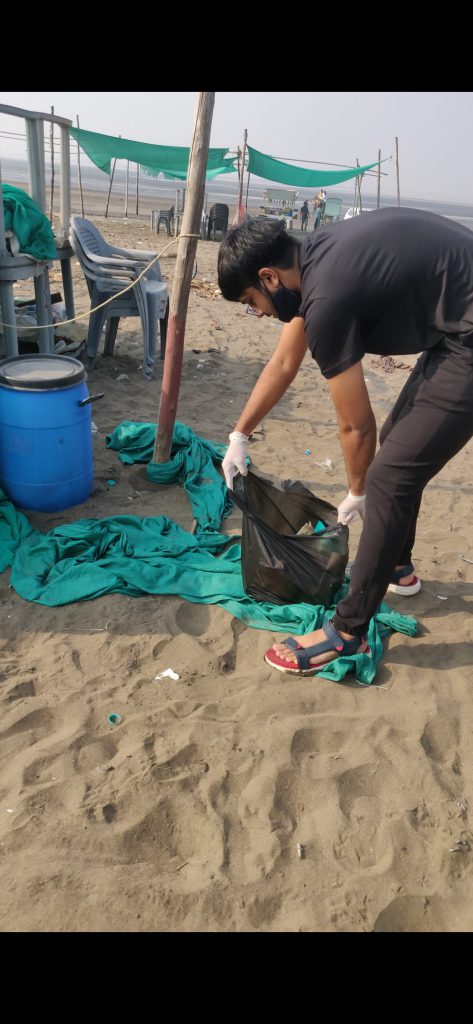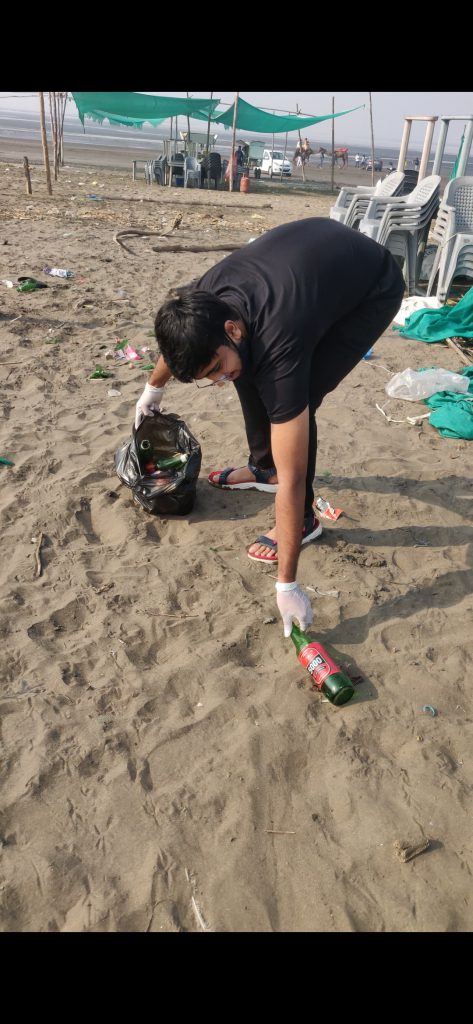I decided to clean up the local beach (Dumas beach). The purpose of this exercise was to clean the habitat so that the humans and animals who live there have a healthy environment in which to survive. Individually, these tiny acts contribute to the beach’s aesthetic, ecological, and economic worth, and may encourage others to do the same. It also aided in the attainment of sustainable development objectives such as living on land, sustainable cities and communities, and so on.
LO2 – Demonstrate that challenges have been undertaken, developing new skills in the process
There were no such difficulties in cleaning the beach because the waste was generated by people around us, and it was our objective to clear them up. Apart from cleaning, even when cleaning the beach, some people threw their trash into the water with little care for the consequences. Cleaning the beach was a temporary solution, but removing the source of the problem was extremely difficult. I demonstrated leadership abilities by assuming responsibility for cleaning the beach. This leadership skill could be important in both leading a movement and ensuring that the task’s focus is maintained.
LO6 – Demonstrate engagement with issues of global significance
The main concern was sustainability, as well as our communities’ disregard for the environment. They are extremely important since they not only govern our survival, but they are also a major feature with inherent value. Animals, plants, soil, and habitat all have intrinsic value and should be treated as such, regardless of the benefit they provide us. My education has provided me with sufficient knowledge about the importance of the environment, allowing me to make thoughtful and informed decisions that have resulted in my personal development. As a person, I’ve become more conscious of my impact on the environment.
LO7 – Recognize and consider the ethics of choices and actions
The ethical difficulties that arose from this activity were that we conducted it during a global pandemic, and that travelling and meeting more people would only increase the virus’s chances of spreading further. I followed all of the government’s rules, but there was still a significant risk involved, and to some extent, I believe it was inappropriate for us to form such groups and go on a group cleaning during a global epidemic.
These ethical concerns were immediately affecting me since if any of us had tested positive, the virus might have infected all of us, potentially causing a chain reaction in which my family and other friends were also infected. As a result, this ethical dilemma immediately affected me.

